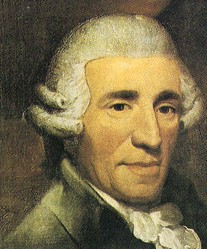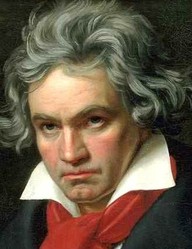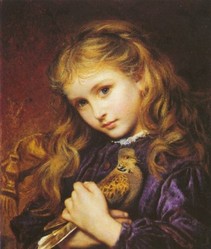Many classical music lovers first discover Haydn through his oratorios, such as "The Creation" and "The Seasons", and through his symphonies, such as the "Farewell" and the "Surprise". Haydn is credited with having created the form of the modern symphony and the modern string quartet -- but, equally important for us, Haydn's music is simply enjoyable to listen to!

Haydn: The Genius Who Wrote the Trumpet Concerto
The Austrian composer, Joseph Haydn (nicknamed "Papa" Haydn), never seems to have stopped working. He produced 104 symphonies, 84 string quartets, and much more.
Haydn's Life
Franz Joseph Haydn (normally known as Joseph Haydn) was an Austrian composer of classical music, who is often referred to as the "Father of the Symphony" and the "Father of the String Quartet".
Born in 1732 into a large family in Rohrau, Austria (he was the second of twelve children), he spent nine years at the Cathedral Choir School of St. Stephens, Vienna. From 1749 he lived a precarious life, earning his keep by teaching music, by playing in street orchestras and for a time working as valet-accompanist for the Italian composer, Nicola Porpora. During this period he taught himself to compose music (partly by study the works of Carl Philipp Emanuel Bach).
In the years 1759-60 Haydn worked for Count von Morzin as Kapellmeister (music director) of the Count's court musicians. He directed the orchestra and wrote his earliest symphonies.
In 1761 Haydn entered the service of the wealthy aristocratic Esterhazy family. He was their court musician and musical director and he was to remain in their service for many years -- until 1790. He lived on the remote Esterhazy estates (first at their castle in Eisenstadt and then at a new palace in rural Hungary) and, thus isolated from most of the composers and musical trends of his time, Haydn was, as he admitted, "forced to become original".
During the almost thirty years that spent with the Esterhazys, who were musical conoisseurs and very supportive of Haydn, the composer produced a vast number of works (by 1790 he had completed more than 70 symphonies and 50 sonatas for the piano, as well as works for the baryton, string quartets, operas and church music). His style developed and he developed an international reputation.
From 1784 Haydn mentored Mozart, who learned much about the symphonic form from Haydn. In return the latter was highly impressed by Mozart's compositions.
In 1790 Haydn made the first of two highly successful visits to London, responding to an offer from the German impresario, J. P. Salamon, to come and conduct there. Apart from putting on very successful concerts there, he composed a number of important works in this period, such as the "Surprise" and the "London" symphonies.
In 1790 Haydn met Beethoven in London. Later, Beethoven was for a time a pupil of Haydn.
Haydn spent his final years in Vienna. During this period he composed two wonderful oratorios, "The Creation" (1798) and "The Seasons" (1801), as well as six important masses, including his Mass in D minor ("The Nelson") (1798).
Ivo Pogorelich Plays Haydn's Piano Sonata No.46
The Musical Works of Haydn
Highlights of Haydn's music works include:
Symphonies (104 in all)
"Farewell" Symphony No. 45 (1772)
"Surprise" Symphony No. 94 (1791)
"The Clock" Symphony No. 101 (1793-94)
"London" Symphony No. 104 (1795)
String Quartets (84 in all)
"Sun" Quartets (1772)
Piano Sonatas
Piano Sonata No. 46
Concertos
Trumpet Concerto in E flat
Choral Works (including Oratorios and Masses)
Oratorio, "The Creation" (1798)
Oratorio, "The Seasons" (1801)
Mass in D minor ("The Nelson") (1798)
Haydn's Trumpet Concerto
Trumpeter: Wynton Marsalis
Haydn's Legacy
Haydn is regarded as having founded:
-- the form of the modern symphony (with its four movements)
-- the form of the modern string quartet (with its four movements).
He also largely developed the piano trio and the piano sonata forms.
As such, later composers such as Beethoven, Mozart, Brahms, Mendelssohn and Schubert owe a huge debt.
Haydn's oratorio, The Creation - "The Heavens Are Telling"
Haydn on the Internet
Joseph Haydn Quotations
Quotes from and about Haydn.
Franz Joseph Haydn | AllMusic
Franz Joseph Haydn is the composer who, more than any other, epitomizes the aims and achievements of the Classical era.
More Classical Music
You might also like
Beethoven: The Genius Who Composed The Moonlight SonataLudwig van Beethoven is probably the best known composer of classical music. ...
Music Book Review: Handel's Bestiary by Donna Leon, With CD of...Handel's Bestiary by mystery writer Donna Leon brings together a CD of one an...









 Ancient Rome: History and Heritageon 02/28/2012
Ancient Rome: History and Heritageon 02/28/2012
 Ancient Greece: History and Heritageon 10/14/2012
Ancient Greece: History and Heritageon 10/14/2012
 Schumann: The Genius Who Composed Scenes From Childhoodon 04/29/2012
Schumann: The Genius Who Composed Scenes From Childhoodon 04/29/2012
 Mahler: The Genius Who Composed the Resurrection Symphonyon 03/04/2012
Mahler: The Genius Who Composed the Resurrection Symphonyon 03/04/2012



Comments
Thanks, katiem2! I too am learning to appreciate classical music more as I write these music articles for Wizzley!
As I follow your work and learn more about the composers I find I like far more classic genius composers. I love classical music, its so productive and a great muse.